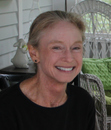Sallie Showalter's Blog, page 11
March 27, 2020
Neighboring History
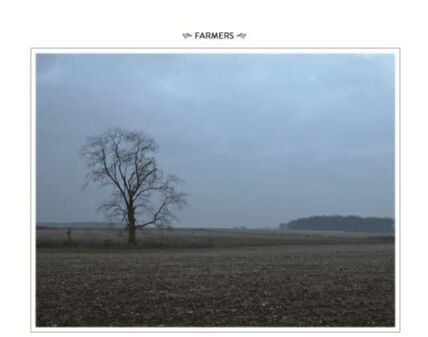 One of the riveting photos from “Celebrate a Community.” When I established Murky Press in the summer of 2017, it was originally a means to an end: I wanted to publish The Last Resort. And since I was already working on my novel, Next Train Out, I expected Murky Press would eventually have at least two titles in its catalog.
One of the riveting photos from “Celebrate a Community.” When I established Murky Press in the summer of 2017, it was originally a means to an end: I wanted to publish The Last Resort. And since I was already working on my novel, Next Train Out, I expected Murky Press would eventually have at least two titles in its catalog.But once the business was set up, I realized Murky Press could also provide a service for others who had a project they wanted to publish. I didn’t have a clear vision of how that might work, but it seemed a logical proposition to use the infrastructure and the experience I had gleaned to help others get their books in print.
I’ve been so busy with my own writing that I hadn’t yet promoted this idea beyond casual conversations with a few folks I knew had projects underway. But back in December, I was approached by the two editors of Celebrate a Community, a handsome coffee table book that uses photos, historical documents, and well-researched text to tell the history of Perry Township and Fayetteville, Ohio.
I began corresponding with Peggy Mezger Cooper, one of the book’s editors and a recent contributor to "Clearing the Fog," and we gradually put together a plan to reprint the book. They had depleted the copies from their first press run and were seeking a way to meet demand for additional copies at a reasonable price.
I’m pleased to announce that the book is now available to all interested parties. You can read more about it on the Murky Press home page or order a copy from Amazon.com.
If you are working on a book that you think reflects Murky Press’ mission, and you are searching for a way to get it published, get in touch with us. We may be able to help you find your way.
Published on March 27, 2020 17:16
March 21, 2020
Triumph
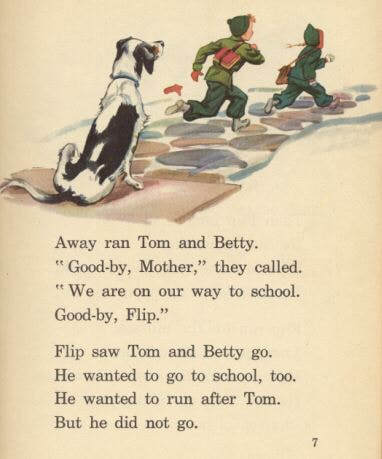 Who didn’t learn to read alongside Tom, Betty, and Flip? As many of us find ourselves with time to pick up a book, Peggy Cooper, of northern Kentucky, recalls first learning to read. Her ruminations may even inspire you to start putting words on a page. Peggy is the co-editor of Celebrate a Community, reprinted by Murky Press and available now from Amazon.
Who didn’t learn to read alongside Tom, Betty, and Flip? As many of us find ourselves with time to pick up a book, Peggy Cooper, of northern Kentucky, recalls first learning to read. Her ruminations may even inspire you to start putting words on a page. Peggy is the co-editor of Celebrate a Community, reprinted by Murky Press and available now from Amazon.
It was 1960. I’d been ill and out of school because of some childhood illness. When I returned to school, there was catching up to do. Mrs. Johnson brought me to the front of the class so that we could do some work together while the rest of the class did other things. In the front of that classroom on a table perfectly sized for a first grader stood a huge book, a book that was taller than I was. I was going to learn to read.
I knew my numbers and letters. I liked hearing stories and looking at the pictures in books. I liked school and Mrs. Johnson. She had taught my father when he first attended the one-room schoolhouse just south of Chasetown. He could read before he even went to school because he’d watched and listened and learned alongside his brother, John, who was two years older. Because he already knew first-grade learning, my father managed to skip that grade. I didn’t understand what I was supposed to do.
It always helped to see other children do things first. Cousin Barbie, best friend and confidante, sat in the desk in front of my desk at school. She lived in town. She was wise in the ways of the world. She always knew what to do. We would talk and whisper and plan and play together. She was not at the table in the front of the classroom with me. I was lost, in more ways than one.
Mrs. Johnson pointed to the picture in the book. The boy, Tom, was running. Yes, I could see the picture of Tom running. There were big black letters too. S-E-E. Yes, I knew those letters. What did those letters sound like? They sounded like an ess and an eee and another eee. How did they sound together? What did that mean, sound together? And what did Tom have to do with those letters on the page?
Mrs. Johnson had been teaching for many years. In some way that now seems magical, she helped me make the connection between those letters on the page and how those letters could be put together to make words that told a story. I don’t remember how long she worked with me that day or over the next several days; I know it was a struggle. Mrs. Johnson knew how to help: SEE! See Tom. See Tom run! Then Betty joined the story, and Susan, and Flip, the dog. I could read! Triumph!
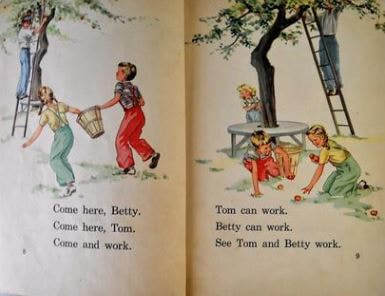
Now I am putting letters on a page to tell stories myself. The stories, and the writing, are often like that experience of learning to read—a struggle to create meaning from a jumble of things that don’t seem to be connected. Sometimes the stories are about people who have lived and worked together and had a life before I was even born, remembered because it, the story, or they, the people, were significant in some way. Sometimes the stories are memories from my own life, savored because they were important to me. Sometimes the story evolves out of a photograph or a document, again, saved for a reason, and sometimes saved across generations.
The essence of the story is the feeling it provokes, and often the meaning is caught up in the reason that the history, or the memory, or the photo or document, was saved. But, how to find that meaning, put it into words, and then share it? Feelings are elusive—and sensitive—things. Meaning is equally elusive, and personal. And the personal is, oftentimes, private, delicate, and special. A decision must be made—share or not?
Struggle sums up the process.
I’m still working on the triumph.
Published on March 21, 2020 17:22
March 17, 2020
Sending My Regrets
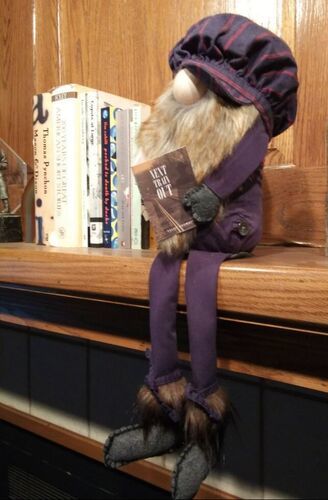 Everyone’s reading NEXT TRAIN OUT! Even this winsome locomotive engineer, handcrafted by my talented friend and neighbor, Lynne Craft. As a socially awkward introvert, I don’t always look forward to parties. But I was really, really looking forward to celebrating the release of Next Train Out with you.
Everyone’s reading NEXT TRAIN OUT! Even this winsome locomotive engineer, handcrafted by my talented friend and neighbor, Lynne Craft. As a socially awkward introvert, I don’t always look forward to parties. But I was really, really looking forward to celebrating the release of Next Train Out with you.As I’m sure you have surmised by now, it is necessary to postpone our book launch party scheduled for April 5. We have also postponed my April 14 presentation before the Anderson County Historical Society. I am terribly disappointed. But none of us wants to play any role in inadvertently spreading this dangerous virus.
We hope there will be a time later this year when we can come together and raise a glass of “Bourbon on the Tracks” in celebration. But now it is critical that we all heed the recommendations of our governor and the CDC and remove ourselves from society as much as we possibly can.
The good news? It’s a great time to read! I hope you’ll consider ordering a copy of Next Train Out from Amazon. If you prefer, contact me here and I’ll mail you a copy.
I’ll warn you that elements of the book may now hit a little close to home. There are references to the 1918 flu pandemic, as well as the 1929 stock market crash and its aftermath. I had no clue, of course, as I was writing the book how eerily familiar this period in our history might feel to contemporary readers.
Since I can’t see you in person, I hope you’ll drop me a note or call to let me know what you thought. I’m finding that readers frequently are curious about what in my grandfather’s story is fact and what is fiction. I’ll be happy to pull back the curtain a bit if you’re interested.
Finally, let me say, most importantly, how grateful I am for you interest. Please, do everything you can to stay safe and healthy during these trying times.
Published on March 17, 2020 06:06
March 15, 2020
Our New Reality
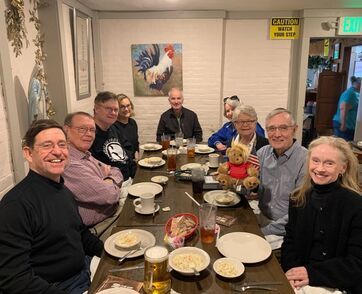 On Presidents Day (February 17), the Goodlett cousins gathered for a quick visit in Oldenburg, Indiana, oblivious to the dramatic shifts all Americans would face less than a month later. For three years I’ve looked forward to finishing my novel so I would have time for other things I enjoy: watching college basketball, attending chamber music concerts or literary events, having lunch with friends, traveling.
On Presidents Day (February 17), the Goodlett cousins gathered for a quick visit in Oldenburg, Indiana, oblivious to the dramatic shifts all Americans would face less than a month later. For three years I’ve looked forward to finishing my novel so I would have time for other things I enjoy: watching college basketball, attending chamber music concerts or literary events, having lunch with friends, traveling.You know where this is going.
I am trying hard to maintain perspective on the grave threat our country—and, indeed, the entire world—is facing as the coronavirus spreads rapidly. I understand the exponential rise in cases demonstrated by the line charts we’ve all seen. I am taking this very seriously.
So I’m only going to whine once: Why not while I was already hunkered down in isolation writing the book?!
OK, I’m done.
In reality, I am in an unusually felicitous situation. I do not have young children whose routines and education, not to mention safety or food security, have been upended. I do not work outside the home, so deciding how to fulfill my employment obligations without interacting with others is not a burden. I have no family members in nursing homes or assisted living facilities. As far as I know, I am healthy—even if I have now been defined as “elderly.” My risk of having a bad outcome even if I contract the virus is low.
And I like being alone. I can readily entertain myself. I have scores of books here in my home that I have not yet read. I have big organizational projects around my house I have put off for years. I thoroughly enjoy walking my dog and paddling around the lake (if it ever stops raining). There is plenty to occupy me here.
Nonetheless, even I—an affirmed misanthrope and regular avoider of social gatherings—am feeling the isolation. I think that’s in part because it came on so suddenly. Last Tuesday I was gathering with friends and family at a restaurant in Lawrenceburg. By Wednesday things were beginning to unravel. Today it would feel irresponsible to make plans for such an outing.
I tend toward depression, and I could feel the darkness closing in at the end of the week. I took the actions I could to forestall it. I went for a long run on the beautiful Legacy Trail (in between rain showers). I cautiously attended a cycling class at my gym, trying to avoid the other participants and wiping down every surface I touched. I finished a book I had been reading.
But I do have concerns about the mental health implications of this necessary social-distancing and the open-ended period of isolation we are facing. As entertainment options and our usual distractions become unavailable, where do we turn? As our social network narrows, how does that affect us? Are those with addictions at particular risk? Is anyone preparing for this next crisis?
Many of you know that I’ve fretted over the years as we’ve shifted to online virtual connections and abandoned both casual and committed interpersonal interactions. The fears I expressed about social media in a 2016 op-ed today seem almost quaint. The norm is now to look down at our phones rather than acknowledge the presence of an individual we pass on the street—or someone sitting beside us at the table. It’s not just young people now who don’t know how to exchange common courtesies with a clerk or politely answer a phone call.
We had already willingly moved toward “self-isolation.” How much farther will this pandemic push us? How will we recover as a human community, a community of individuals who genuinely need each other?
I’m much more worried about that right now than I am about whether I can get toilet paper at the grocery.
Published on March 15, 2020 09:46

